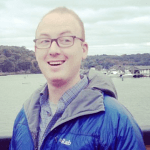
I was very privileged to receive a Museum Cross-Pollinator scholarship to attend the DLF Forum in Vancouver this year. My experiences at the Forum in were intellectually challenging, exciting and sometimes just a bit overwhelming. There is so much to share about what I learned and the people I met but I want to focus my reflections on what made the DLF Forum different from all the other conferences I have been to. When I arrived knew that I wanted to meet new colleagues, learn and share my experiences but I did not expect the Forum to really strike hard at the core of who I am and why I want to work in the library, archive and museum communities. Many conferences have technical depth and experts presenting the latest research but what made DLF special was seeing all of that work grounded in an active drive for social justice, equality and the public good.
The conference opened with a keynote from Dr. Safiya Noble that may have been one of the best keynotes I have seen at a conference. It touched on many important issues ranging from the misrepresentation of women and girls, particularly black girls, in search results to the impact money and influence have on search rankings and democracy. Since I am particularly interested in building access and discovery systems, it really challenged me to think differently about the work I do. One of her many points that I have continued to think about was that algorithms are not neutral thing divorced from the context of their creation, they reflect the values of the people who built them. This is something that has been written about and discussed for a while but it was new to me. Until now I have thought of the issues surrounding search relevance as math problems that have finite and discrete solutions but I see the problem differently now. I need to change how I frame the discovery problems I am trying to solve and see the solutions as a social construct that reflect the both my values and the values of our institutions. I am not sure I know how to do that now but I want to learn. I walked out of her keynote with a reading list of articles and books that I am excited dive into. A partial list of those is provided below. Check out the group notes at the bottom for a more complete listing of readings.
- Feminism and the Future of Library Discovery
- The Googlization of Everything
- The Relevance of Algorithms
- Information Inequality
- Critical Algorithm Studies: A reading list
- Community notes on keynote address
Over the next two days I went to a lot of different linked data sessions. I learned a lot about linked data creation and measuring metadata quality but felt in good company because there seemed to be agreement that there is not yet a ‘killer app’ for linked data or one right way to create it. I learned about institutional repositories for research data and although I don’t do any of that work in my current job, it was really interesting stuff (I still haven’t wrapped my head around Hydra though).
The closing panel invited ten leaders within the DLF community to reflect about their goals for the forum and organization. Because this was my first Forum it was interesting to hear a little bit about how the Forum had changed over the past twenty years and where people wanted to see it go. There were many impactful testimonials from both the panel and the audience and you could hear the emotion in their voices as they recounted what the Forum and the DLF community meant to them. It was a powerful moment to see new colleague and friends open up and share things that were obviously very close to who they are as people. This is a very special community and I am looking forward to engaging with and learning from in the future.
A huge thank you to CLIR and DLF, especially Bethany Nowviskie, Louisa Kwasigroch, Oliver Bendorf, the Kress Foundation and Max Marmor and all of the sponsors. Thank you to all the staff members, volunteers, presenters and attendees who welcomed me and made the 2015 Forum such a wonderful conference. Hope to see you next year in Milwaukee!
